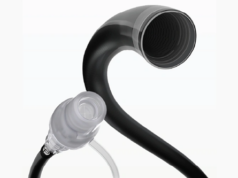
It has been found that oral apixaban is noninferior to subcutaneous dalteparin for the treatment of cancer-related venous thromboembolism (VTE), as revealed by Giancarlo Agnelli (University of Perugia, Perugia, Italy) at the American College of Cardiology/World Congress of Cardiology’s virtual scientific sessions (ACC.20/WCC Virtual). Simultaneously published in the New England Journal of Medicine (NEJM), the Caravaggio study also showed no increased risk of major bleeding with oral apixaban.
According to recent guidelines, the use of oral edoxaban or rivaroxaban is recommended for treating VTE in cancer patients, however, as first author Agnelli emphasised, “the clinical benefit of these oral agents is limited by the increased risk of bleeding associated with their use, mainly occurring at the gastrointestinal sites”. Presenting the study as part of ACC.20/WCC Virtual, Agnelli highlighted that compared to edoxaban and rivaroxaban, apixaban has shown favourable efficacy and safety.
The aim of the Caravaggio study, the presenter explained, was “to assess whether oral apixaban would be noninferior to the low-molecular-weight heparin agent, subcutaneous dalteparin, for the prevention of recurrent VTE in patients with cancer”, and without increasing the risk of major bleeding.
In this multinational, randomised, investigator-initiated, open-label trial, with blinded central outcome adjudication, 1,170 consecutive patients with both cancer and either symptomatic or incidental acute proximal deep vein thrombosis (DVT), or pulmonary embolism, were randomly assigned to one of two groups, with half (n=585) receiving oral apixaban (a dose of 10mg twice daily for seven days, followed by 5mg twice daily), and the other half (n=585) receiving subcutaneous dalteparin (dose of 200 IU per kilogram of body weight daily for one month, followed by 150 IU per kilogram daily).
“The maximum proportion of patients entering the study with incidental pulmonary embolism was set at 20% of the overall trial population” stated Agnelli, who also listed some of the main exclusion criteria for the trial, which included those aged less than 18 years, patients with a life expectancy of less than six months, and persons with active bleeding or a high risk of active bleeding contraindicating anticoagulant treatment.
These treatments were administered for six months, with trial visits scheduled at enrolment and four weeks, three months, six months and seven months after randomisation. Across each of the populations, nine in the apixaban group did not receive the assigned treatment, compared to six in the dalteparin group. All other patients were included in the modified intention-to-treat and safety populations. Objectively confirmed recurrent VTE, during the trial period, was established as the primary outcome of the study, while the principal safety outcome was major bleeding.
Results of the study, conducted between April 2017 and June 2019 at 119 centres across the USA, Europe and Israel, demonstrated that in terms of the primary outcome, recurrent VTE occurred in in 5.6% of patients (n=32) treated with apixaban, compared to 7.9% of patients (n=46) who received dalteparin (hazard ratio, 0.63; 95% confidence interval [CI], 0.37–1.07; p<0.001).
Turning his attention to the safety outcome, Agnelli underlined that major bleeding occurred in 3.8% of the apixaban group (n=22), lower than the 4% of patients (n=23) in the dalteparin group (hazard ratio, 0.82; 95% CI, 0.4–1.69; p=0.6).
On the limitations of the trial, Agnelli noted that Caravaggio was an open-label study to avoid the use of parenteral placebo for six months. However, as he explained, suspected recurrences of VTE between both cohorts were similar, and all suspected outcome events were centrally adjudicated in a blinded manner. Moreover, Agnelli pointed out that gastrointestinal bleeding, which has now emerged as a relevant safety measure, was not a prespecified trial outcome, while the sample size, albeit powered for the primary outcome, was not powered to make definitive conclusions about bleeding.
Concluding his presentation, Agnelli summarised: “Oral apixaban was noninferior to subcutaneous dalteparin for the treatment of cancer-associated VTE, and no increase in the risk of major bleeding was observed, particularly at the gastrointestinal sites. The findings of Caravaggio expand the proportion of patients with cancer-associated thrombosis who are eligible for treatment with oral direct anticoagulants, including patients with gastrointestinal cancer.”












